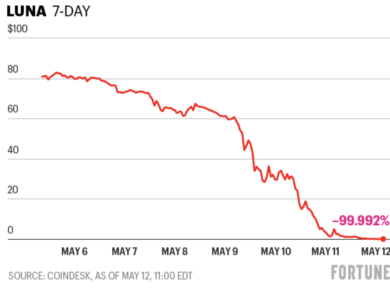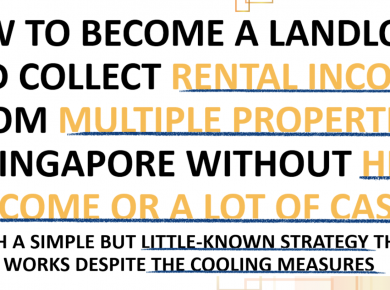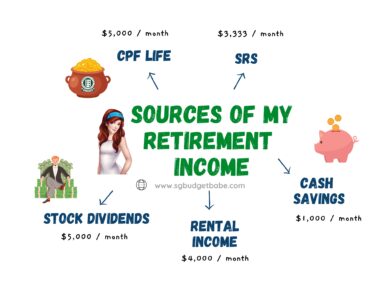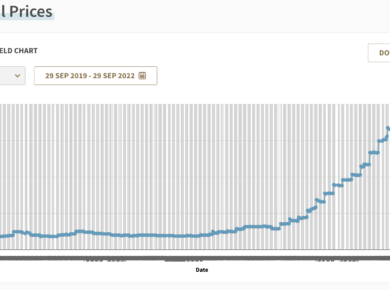As an investor, we want to ensure that we own great businesses that can consistently grow their earnings and deliver outsized returns to us for many years to come. Which is why identifying companies riding on mega trends that will shape our world in the next few decades sits at the core of my investing approach, given that these powerful tailwinds can drive the business to greater success and thus profits.

Over the years, I’ve found that my returns on such investments have proven to be a far better strategy than when I bottom-fish on stocks in struggling industries (e.g. see what I said about SPH in 2017 here):

But of course, identifying winning companies isn’t always easy.
It takes up a lot of my time and energy, and when an industry is completely out of my circle of competence (such as oil or energy), it can take me several months to complete my analysis. And even then, I often end up not investing.
I tend to approach this in a top-down manner:
- Which are the long-term trends that are going to lead to bigger addressable markets over time?
- Who are the leaders in this industry, and what are the competitive advantages that will keep them winning over their rivals?
- Are margins sustainable?
- Will profits eventually accrue to us as investors?
Even then, it isn’t easy to identify the potential winners. In the field of technology, for instance, just take a look at how the top 20 list has changed. The 2000s darlings such as Dell, EMC and Cisco have since lost their leadership positions.

If you’re not familiar with the industry, there’s nothing wrong with admitting that you have no clue on who’s going to be the winner.
You can be confident that solar energy is going to become a dominant energy source in the near future, but whether it’ll be First Solar or Sunrun who becomes a winning stock is a different story.
More than 50% of global GDP growth in the next decade is projected to come from China, but which Chinese companies will thrive as a result?
I know that cancer treatments will become huge in the coming decade, but whether Fate Therapeutics or Ionis Pharmaceuticals will succeed is anyone’s guess.
In this case, there are 2 strategies you can adopt:
- make many small bets (the Peter Lynch approach)
- invest in an ETF that tracks the industry, or holds a basket of your shortlisted stocks
In this case, I’ve chosen the latter, and I’m doing it through Syfe Select.

Why use Syfe Select when you can DIY?
Now, some of you have questioned me on Instagram on why I put my money into Syfe when I’m an active stock picker, so let me preface this with two things:
Firstly, if you’re new to Budget Babe, you should know that I walk my talk. I’m extremely selective about the sponsored engagements that I take on (perhaps more so than necessary, considering how much advertising money I’ve rejected till date), and if I say I’ve put my money in it, I mean it.

Why did I put my money into Syfe Select’s portfolios even though I’m a DIY investor who actively manages my own portfolio? Well, when I see an ETF that gives me a solution by way of exposure to a growing industry that’s out of my circle of competence (i.e. I have trouble analyzing and identifying the potential winners), I won’t say no, especially when it is more cost-efficient as well.
Imagine having to manually buy the 8 ETFs by yourself and paying 8 x brokerage fees every month.
Now contrast that to creating your portfolio of 8 ETFs with Syfe and setting up a one-time standing instruction to fund your account each month.
It’s almost a no brainer.
What are the themes in Syfe Select?
There are 5 thematic portfolios offered to investors in Syfe Select:
I urge you to click on the links above to read more about each portfolio before you decide what’s more suitable for you.
Syfe has curated a list of 8 ETFs for each portfolio, selected based on their asset size, expense ratio and liquidity. In other words, in order to keep costs low for investors, Syfe requires that the ETFs must be low-cost, highly liquid, track their benchmarks closely, and the asset manager must have a good reputation.
The weightages are assigned based on Syfe’s own “asset-class risk allocation method” (read more about it here), where an ETF with a lower risk score is given more weight compared to one with a higher risk rating, as shown below:

If you prefer to remove some of the proposed ETFs, or even tweak the asset allocation, then you’d want to move into Syfe Select (Custom).
That’s what I did.
For instance, if you’re going for Healthcare Innovation but already have a sizable allocation to ARKG in your existing portfolio, then you can click on the “Customize” button to reduce your exposure, or even remove it completely.
Create Your Custom ETF Portfolio
You can either (i) tweak one of Syfe’s existing portfolios or (ii) choose from over 100 ETFs curated by Syfe and create your own portfolio.
For instance, imagine you wanted to create a portfolio combining all of Ark’s ETFs so you can do dollar-cost averaging via Syfe.
Step 1: Choose Custom and click on “Select”

Step 2: Click on “View all”.
This will then bring up the list of ETFs available to you via Syfe. Scroll and click on “Add” for the relevant Ark ETFs that you’re keen on.

Step 3: Syfe will then allocate equal weightage to each of your ETFs, but if you want to tweak this further, just click on the pencil icon to amend the allocations to your desired percentages.

You can then toggle through the charts that are generated based on your allocations, to see how diversified (or concentrated) you are, including the top stock holdings, country exposure, etc.

Step 4: Once you’re satisfied, click on “Confirm portfolio” at the top.

Step 5: Name your portfolio and set how much funds you wish to invest with.

Click on “Done”.
For fans of ARK and/or Cathie Wood, Syfe Select (Custom) is actually a more cost-efficient way to DCA into Ark’s funds on a regular basis.
After all, if you’ve tried doing your own DCA into Ark’s funds yourself, you’ll know that manually buying it each month, incurring all the brokerage expenses for each fund and also managing it…can be a real pain.
Tweaking Themes for your own custom portfolio
Alternatively, if you find sieving through Syfe’s entire ETF list too daunting, then you can also opt to work off their existing Select portfolios and simply tweak the allocations for yourself.
This was what I did.
First, choose the theme that you want and click on “Customise”.


You’ll then see this prompt:

Click on the pencil icon to tweak to your desired allocation. Here’s a sample view if you were to opt for just ARKW, ARKF and CIBR in your own customized Disruptive Tech portfolio.

What’s cool is that the charts change in real-time as you tweak the asset allocations, showing you how diversified or concentrated you are.

I’ve set up 2 portfolios on Syfe Select to function as my satellite holdings (if you’ve no idea what that means, read this) in this manner, and customised it to fit my own beliefs of the ETFs that I’m more optimistic on.
For healthcare, I picked 5 out of the 8 suggested ETFs. Similarly, for disruptive technology, I eliminated Renaissance IPO ETF because I seldom invest in IPOs, given that companies generally try to list during good times so they can get a higher valuation than what they’re worth. The top 10 holdings in this ETF further confirmed my concerns, given that I’m not a fan of more than half of its list (click here to view).
I’m still thinking if I should set up a custom ESG portfolio, because frankly speaking, only three ETFs (iShares Global Clean Energy ETF, Invesco Solar ETF and Water Resources ETF) appeal to me.
What if I already have an existing Syfe portfolio?
Given Syfe’s rising popularity among Singaporeans, I won’t be surprised if most people already have an existing portfolio with Syfe.
You could use Syfe Select’s thematic portfolios as satellites to complement your overall investment strategy. Given the higher risk, I wouldn’t recommend that these form your main, core portfolio. You might want to check out Syfe Core instead for that.
As for active investors, Syfe Select might just change your perception towards robo-advisory offerings entirely.
Is Syfe Select worth exploring?
With no minimum investment, no lock-in periods (meaning you can withdraw your funds anytime you need to) and no brokerage fees, I find Syfe Select portfolios to be extremely attractive. For the newbie investor, this is probably the easiest and most cost-efficient method available right now.
Even as a DIY investor myself, I like Syfe Select because it removes the manual work of buying the underlying ETFs each month for me, but also reinvests the dividends on my behalf.
Unless you opt for the Customised route (like I did), Syfe will even automatically rebalance your portfolio for you – once every 6 months.
All these, for a flat 0.65% management fee p.a. And if you were to invest more funds with them, the management fee drops to 0.5% for $20k and 0.4% for $100k.
Definitely worth taking a look at.
Sponsored Message
If you’re looking to outsource your investments and start investing with Syfe, use promo code BUDGETBABE to waive off your management fees for the first 3 months (up to your first $30,000).
Disclosure: This article is sponsored by Syfe. All opinions are that of my own.. This article is for information purposes only and does not constitute financial advice. Past performance of a product is not indicative of its future performance. This advertisement has not been reviewed by the Monetary Authority of Singapore.






